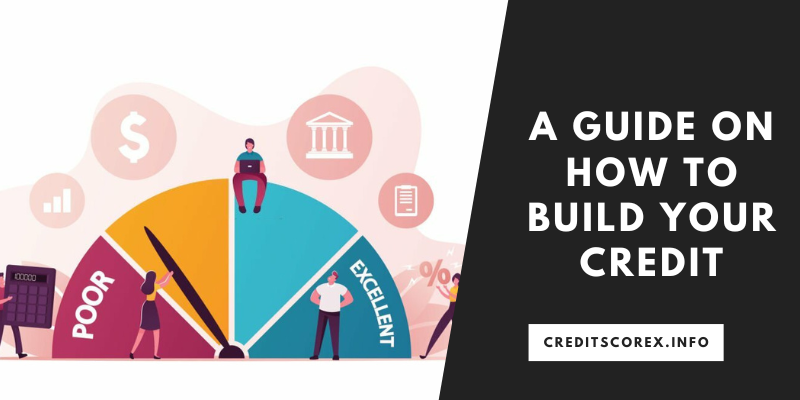
Building your credit is like constructing a solid financial foundation—it requires patience, strategy, and responsible financial habits. Whether you’re just starting your credit journey or looking to improve your existing credit profile, this guide will walk you through the steps to build and strengthen your credit.
1. Understand Your Current Credit Situation: Knowledge is Power
Before diving into the credit-building process, it’s essential to understand where you currently stand. Obtain a copy of your credit report from each of the major credit bureaus—Equifax, Experian, and TransUnion. Review the reports for accuracy, checking for any errors or discrepancies that may need correction.
2. Establish a Solid Budget: The Bedrock of Financial Health
Building credit begins with sound financial management. Create a realistic budget that outlines your monthly income, expenses, and savings goals. Understanding your financial inflows and outflows allows you to allocate funds responsibly and avoid overspending.
3. Open a Secured Credit Card: A Building Block for Credit
If you have limited or no credit history, a secured credit card can be a valuable tool. Secured cards require a security deposit, reducing the risk for the card issuer. Use the secured card for small, regular purchases, and make timely payments. Over time, responsible credit use with a secured card can positively impact your credit history.
4. Become an Authorized User: Piggybacking on Positive Credit History
If you have a family member or friend with a positive credit history, consider becoming an authorized user on one of their credit card accounts. As an authorized user, you benefit from the primary cardholder’s positive credit history, potentially giving your own credit a boost. It’s crucial to ensure that the primary cardholder practices responsible credit management.
5. Apply for a Credit Builder Loan: Gradual Credit Improvement
Credit builder loans are designed specifically to help individuals build or rebuild credit. With these loans, you make small monthly payments, and the loan amount is held in a savings account. Once the loan is repaid, you receive the funds, and the positive payment history is reported to the credit bureaus.
6. Keep Credit Card Balances Low: The Utilization Factor
Credit utilization—the ratio of your credit card balances to your credit limits—plays a significant role in your credit score. Aim to keep your credit card balances low relative to your credit limits. High credit card balances can negatively impact your credit score, so responsible credit card use is crucial.
7. Make On-Time Payments: The Golden Rule of Credit Building
Consistently making on-time payments is one of the most critical factors in building and maintaining good credit. Late payments can have a significant negative impact on your credit score. Set up automatic payments or use reminders to ensure that you never miss a due date.
8. Diversify Your Credit Mix: A Well-Rounded Profile
Having a mix of different types of credit can positively impact your credit score. In addition to credit cards, consider adding installment loans, such as a car loan or a student loan, to your credit portfolio. However, only take on new credit when it aligns with your financial goals and you can manage it responsibly.
9. Monitor Your Credit Regularly: Stay Informed
Regularly monitoring your credit is essential for staying informed about your credit status. Take advantage of the free annual credit reports available from each major credit bureau. Consider using credit monitoring services that provide real-time updates and alerts about changes to your credit report.
10. Be Patient and Persistent: Credit Building Takes Time
Building credit is a gradual process that requires patience and persistence. Positive credit habits developed over time contribute to a strong credit profile. Avoid quick-fix schemes or strategies that promise rapid credit improvement, as they may have negative consequences.
Conclusion: Your Credit Journey, Your Empowerment
In conclusion, building your credit is a journey that requires commitment, knowledge, and responsible financial habits. By understanding your current credit situation, utilizing credit-building tools like secured cards and credit builder loans, and maintaining positive credit behaviors, you can construct a solid credit foundation. Regularly monitoring your credit and making informed financial decisions contribute to long-term credit health. Remember, your credit journey is unique, and with the right mindset, you can navigate the credit maze with confidence and empowerment.
Leave a Reply